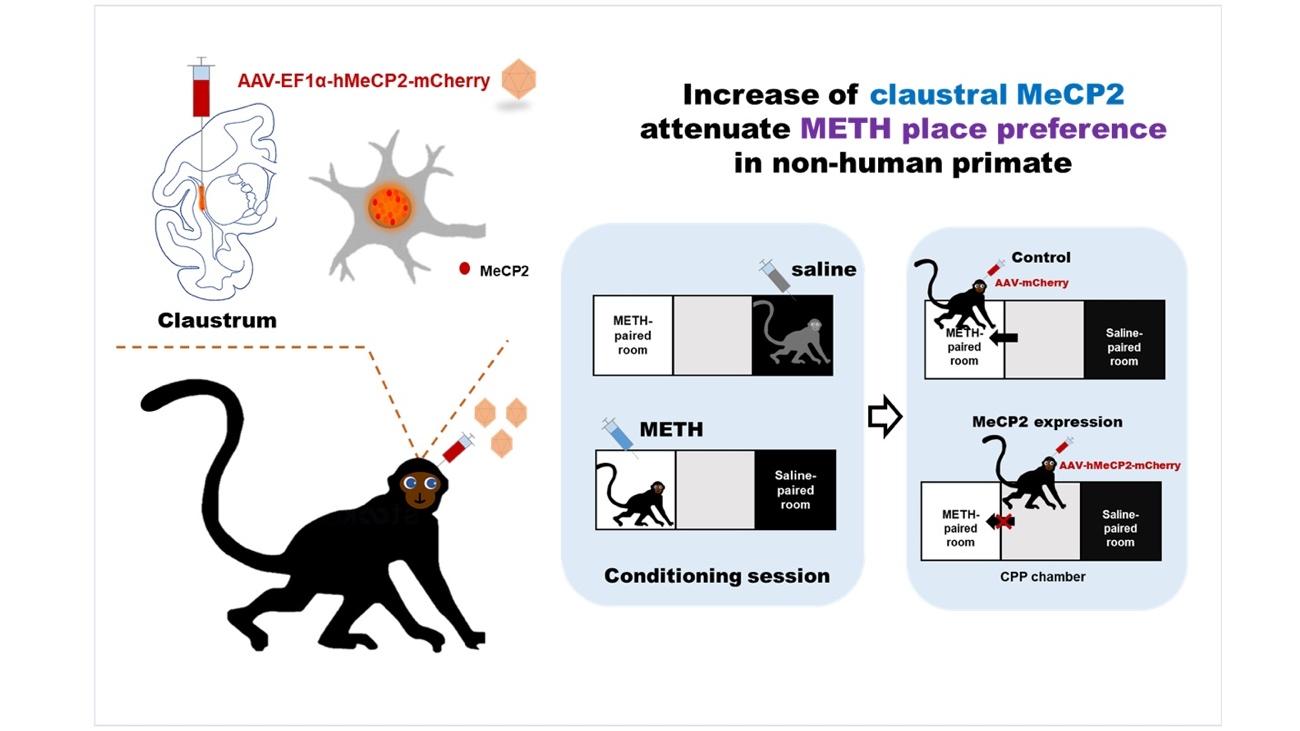Articles
Article Tools
Stats or Metrics
Article
Original Article
Exp Neurobiol 2022; 31(6): 390-400
Published online December 31, 2022
https://doi.org/10.5607/en22034
© The Korean Society for Brain and Neural Sciences
Claustral MeCP2 Regulates Methamphetamine-induced Conditioned Place Preference in Cynomolgus Monkey
Jinhee Bae1, Sujin Ahn1, Doo-Wan Cho2, Hyung-Sun Kim2, Su-Cheol Han2 and Heh-In Im1,3*
1Center for Brain Function, Brain Science Institute, Korea Institute of Science and Technology, Seoul 02792, 2Jeonbuk Branch Institute, Korea Institute of Toxicology, Jeongeup 56212, 3Division of Bio-Medical Science & Technology, KIST School, Korea University of Science and Technology, Seoul 02792, Korea
Correspondence to: *To whom correspondence should be addressed.
TEL: 82-2-958-6961, FAX: 82-2-958-6937
e-mail: him@kist.re.kr
This is an Open Access article distributed under the terms of the Creative Commons Attribution Non-Commercial License (http://creativecommons.org/licenses/by-nc/4.0) which permits unrestricted non-commercial use, distribution, and reproduction in any medium, provided the original work is properly cited.
Abstract
The claustrum, a brain nucleus located between the cortex and the striatum, has recently been highlighted in drug-related reward processing. Methyl CpG-binding protein-2 (MeCP2) is a transcriptional regulator that represses or activates the expression of the target gene and has been known to have an important role in the regulation of drug addiction in the dopaminergic reward system. The claustrum is an important region for regulating reward processing where most neurons receive dopamine input; additionally, in this region, MeCP2 is also abundantly expressed. Therefore, here, we hypothesized that MeCP2 would be involved in drug addiction control in the Claustrum as well and investigated how claustral MeCP2 regulates drug addiction. To better understand the function of human claustral MeCP2, we established a non-human primate model of methamphetamine (METH) - induced conditioned place preference (CPP). After a habituation of two days and conditioning of ten days, the CPP test was conducted for three days. Interestingly, we confirmed that virus-mediated overexpression of MECP2 in the claustrum showed a significant reduction of METH-induced CPP in the three consecutive days during the testing period. Moreover, they showed a decrease in visit scores (frequency for visit) for the METH-paired room compared to the control group although the scores were statistically marginal. Taken together, we suggest that the claustrum is an important brain region associated with drug addiction, in which MeCP2 may function as a mediator in regulating the response to addictive drugs.
Graphical Abstract

Keywords: Methyl-CpG-binding protein 2, Claustrum, Drug addiction, Methamphetamine, Cynomolgus monkey


